Condemned inmate ends weeks of suspense over whether he will choose lethal injection, electric chair or FIRING SQUAD
A death row inmate who was given three options for his execution will be put to death by lethal injection in South Carolina this month.
Freddie Owens, 46, a convicted murderer who shot and killed a store clerk during a botched robbery in 1997, was given the choice of lethal injection, the electric chair or a firing squad when he died.
Although forced to choose the method of his own execution, Owens left his fate in the hands of his lawyer, arguing that his Islamic faith prevented him from taking an active role in his own death.
But even when his attorney Emily Paavola opted for lethal injection, she cited ongoing problems with the method, which have caused a number of recent executions to last several hours and not kill the inmates.
Freddie Owens, 46, a convicted murderer, was given three options for his execution this month, with his attorney deciding on lethal injection
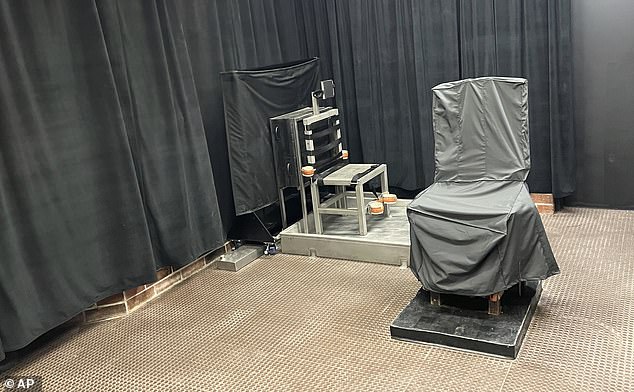
Owens was given the choice of lethal injection, firing squad, or electric chair. Pictured is the SC execution chamber, with the electric chair (right) and the firing squad chair (left)
Experts have raised alarms in recent years about the problems surrounding lethal injection. Shortages of the drugs used in the method have led some states to reportedly extend their stockpiles beyond their expiration dates.
Critics say this has caused several executions to be long and painful, including 50-year-old inmate Joe Nathan James, who in 2022 suffered the longest execution in U.S. history, lasting more than three hours.
In court papers filed this month on Owens’ fate, Paavola addressed those concerns, saying she remains uncertain whether prison authorities can execute the killer effectively and humanely.
“I have known Mr. Owens for 15 years. Under the circumstances and in light of the information currently available to me, I made the best decision I could for him,” she wrote.
“I sincerely hope that the assurances of the South Carolina Department of Corrections will be realized.”
Owens left the decision to his lawyer because of his Islamic faith, which considers suicide a sin. He saw it as taking an active role in his own death by choosing his own execution.
If Paavola had not made a decision, the state would have sent Owens to the electric chair, which the killer said he wanted to avoid.
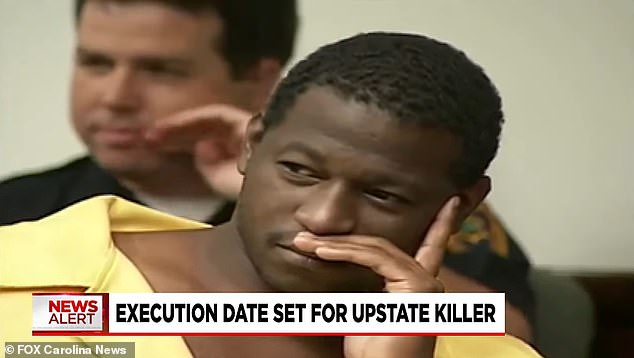
Owens, pictured at his 1999 trial, was sentenced to death for the murder of store clerk Irene Graves during a botched robbery in 1997
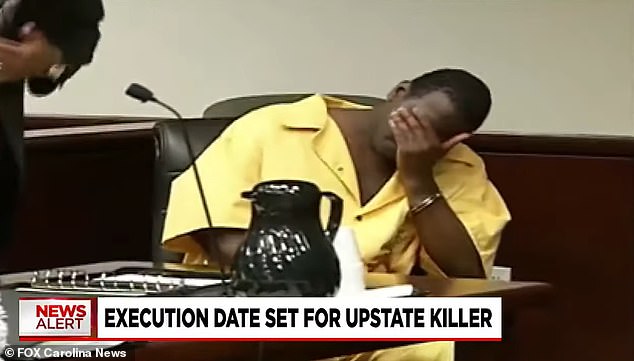
Owens denied killing Graves, and store surveillance footage failed to clearly show who shot Graves in the head — and scientific evidence was never presented at his trial

Owens’ attorney Emily Paavola opted for lethal injection on his behalf, but cited ongoing problems with the method that have led to a number of recent botched executions.
His execution is now scheduled for September 20. It will be the first execution in South Carolina in 13 years.
The delay was due to problems with executions in several states around the country. Last year, however, lawmakers in South Carolina agreed to keep their pentobarbital supplier secret, effectively reopening the execution chamber, the Associated Press reports.
This is because the state previously used a three-drug cocktail and has now switched to a single dose of pentobarbital — similar to the federal government’s method — to make obtaining the drug easier.
The state Supreme Court also ruled in July 2024 that the electric chair and firing squad methods are also legal.
This allowed Owens to finally set his execution date, as he had exhausted all avenues of appeal.
Owens could still get a stay of execution, however, as the Supreme Court will hear an argument from his lawyers that his co-defendant lied during his 1999 trial about making a deal to testify against Owens.
During the trial, his co-defendant Steven Andra Golden testified that Owens was the one who pulled the trigger to kill store clerk Irene Graves when she tried to open the safe during a robbery.
Owens denied killing Graves. Furthermore, the store surveillance footage did not clearly show who shot Graves in the head. No scientific evidence was ever presented at his trial.
Although Owens has pleaded not guilty to the murder, prosecutors say the testimony against him was bolstered by the fact that Owens confessed to the killing to his mother and girlfriend.
Less than 12 hours after he was convicted of Graves’ murder, Owens also killed fellow inmate Christopher Bryan Lee, 28, during a jail cell brawl. Lee reportedly revealed that his cousin was on the jury that sentenced Owens to death.
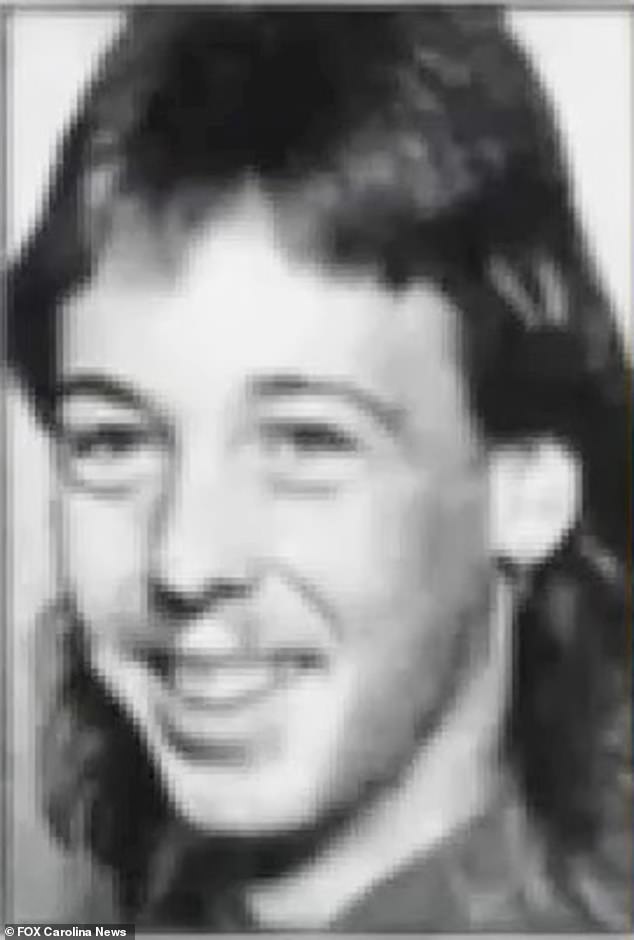
Less than 12 hours after being convicted of Graves’ murder, Owens also killed fellow inmate Christopher Bryan Lee, 28, (pictured) during a jail cell altercation
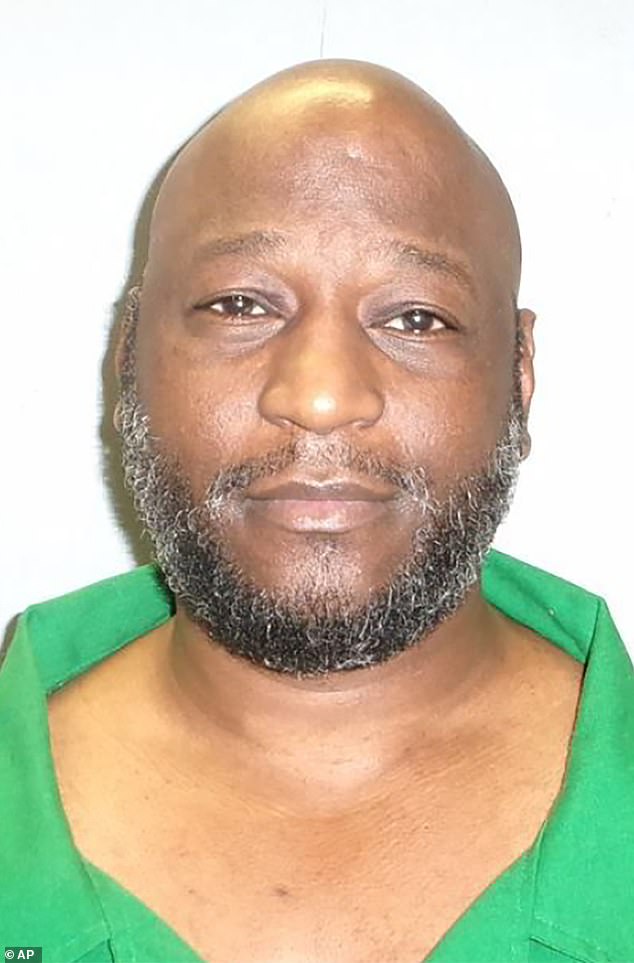
Owens, seen in a more recent arrest photo from death row, will be the first person executed in South Carolina in 13 years if his execution goes ahead on Sept. 20
Prosecutors say the issues Owens’ attorneys raised in seeking a stay of his execution were all addressed during his numerous appeals.
Owens’ death sentence was overturned twice while he was on death row, but new trials each time recommended the death penalty.
“Owens has had ample opportunity to present his claims regarding his conviction and sentence. He need not be resentenced,” the South Carolina attorney general’s office wrote in a court document.
Now that he has run out of other options — including failed arguments over his long-term use of pentobarbital — Owens may have to rely on South Carolina Governor Henry McMaster to grant him a last-minute pardon.
But no governor has done so in the 43 executions carried out in the state since the death penalty was reinstated in the US in 1976.
Governor Henry McMaster has said he will follow long-standing tradition and not announce his decision until the prison administration makes a phone call from the execution chamber minutes before the execution.
